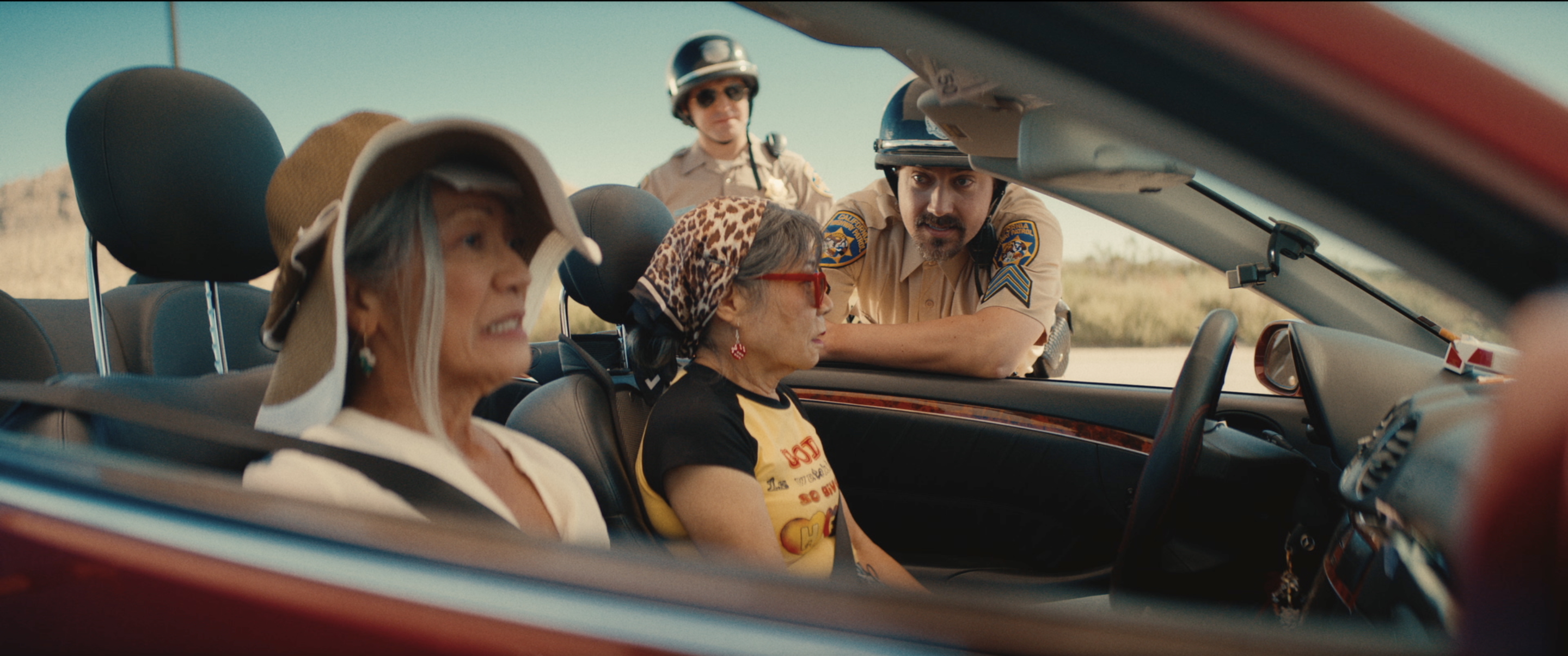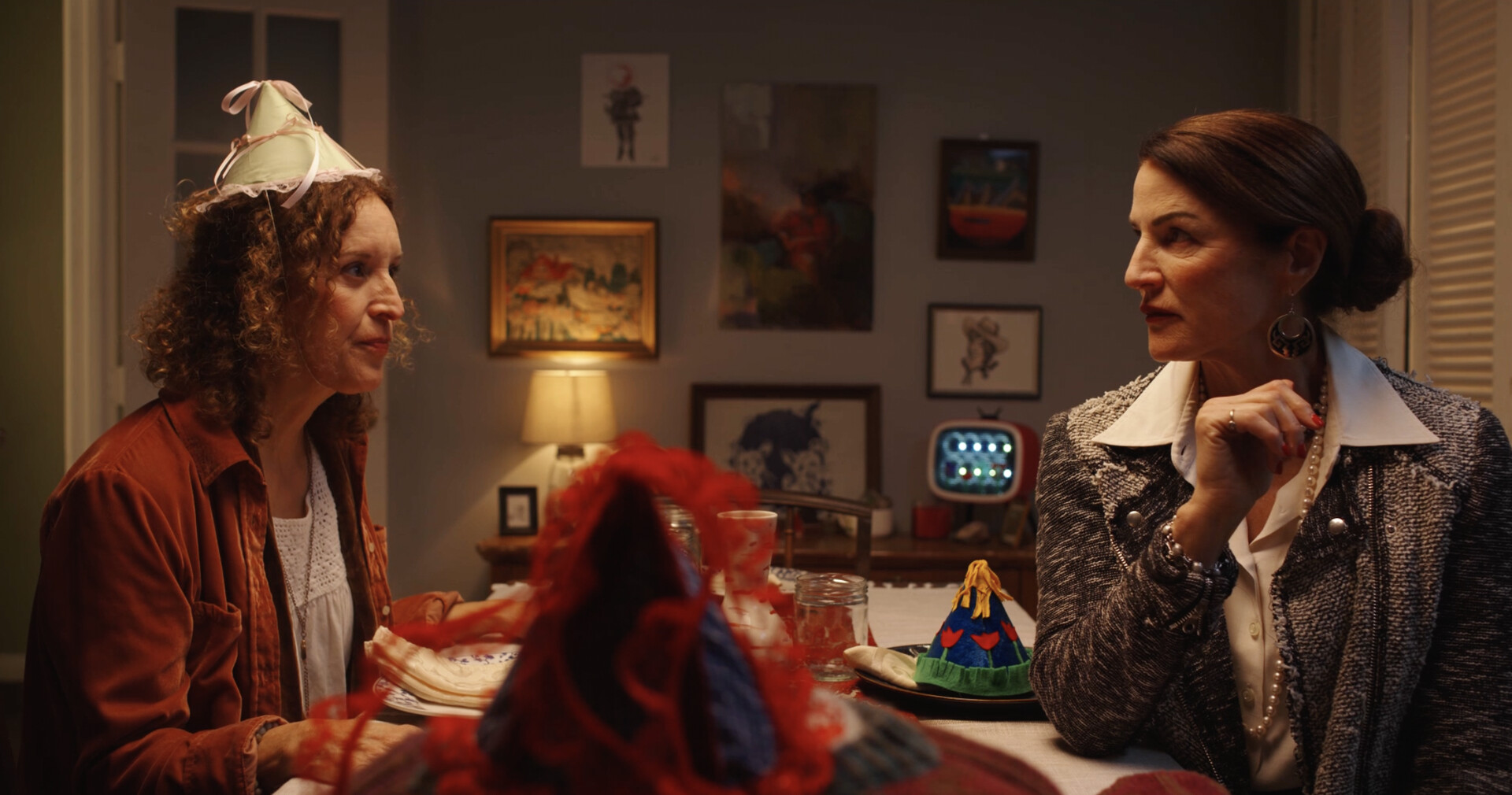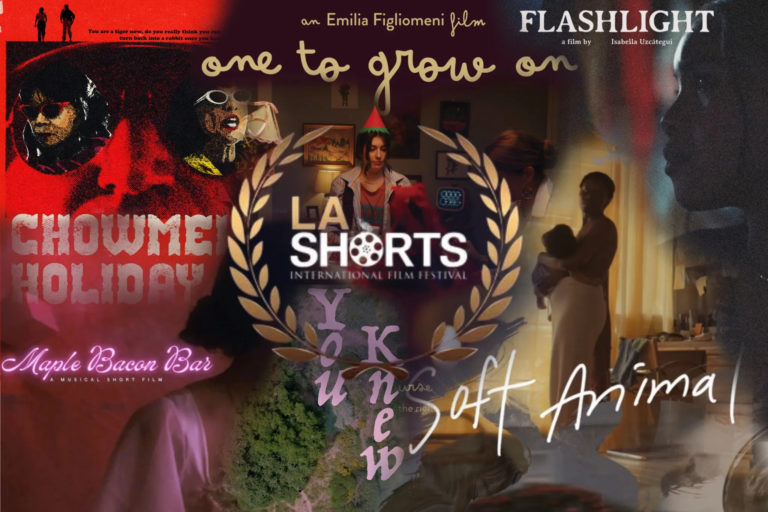In short, these six up-and-coming filmmakers are making their presence known.
From July 16 to July 28, the 29th annual LA Shorts International Film Festival screened around 400 films and attracted roughly 10,000 attendees – including some of UCLA’s very own Theater, Film and Television students. As the longest-running short film festival in Los Angeles, its legacy attracts Hollywood professionals and emerging independent filmmakers alike, merging both the newest and most venerated creators in the industry. Recent graduates of UCLA’s Master of Fine Arts and undergraduate programs lit up the silver screen with their finalized projects, and now they reflect on the moviemaking process as a whole. Among an impressive slew of filmmakers, alumni Shizue Roche Adachi, Emilia Figliomeni, Rhett Hipp, Iris Lanhua Ma, Roan Uong Pearl and Isabella Uzcátegui are making their stories known.
“You make a film and it’s an individual unit and entity and story, and it’s imbued with a very different meaning when put in relationship to other films. … That is part of the risk and the art, the joy of short filmmaking,” Roche Adachi said. “Seeing my film was programmed so differently, and in conversation with such different films, … made me see my work in a really different way.”
 Director Shizue Roche Adachi offers guidance to actors in preparation for a scene. She said her short “Soft Animal” is less interested in salting a wound or exploiting trauma but about exploring healing and all of the messiness and uncertainty that goes along with it. (Courtesy of Shizue Roche Adachi)
Director Shizue Roche Adachi offers guidance to actors in preparation for a scene. She said her short “Soft Animal” is less interested in salting a wound or exploiting trauma but about exploring healing and all of the messiness and uncertainty that goes along with it. (Courtesy of Shizue Roche Adachi)
From finding her directing voice to learning how to work with the Screen Actors Guild, 2025 MFA graduate Uzcátegui said the journey to LA Shorts began with the mentorship and collaborative nature of UCLA’s TFT program. With her emphasis in narrative directing, Uzcátegui added that she has always gravitated toward character-driven stories and the female lens, so UCLA’s genre-agnostic teaching methods made for an excellent fit. A 2024 MFA graduate, Ma had a similar experience, as she said attending film school in LA allowed her to experience the commercial side of filmmaking while learning how to attract audiences through important yet receivable messages.
As the launching pad for their respective projects, the filmmakers agreed the process of creating a short film at UCLA was fast-paced and highly collaborative. A 2024 alumnus of the undergraduate TFT program, Pearl said the production process included planning and filming in the fall quarter – with most shooting done during weeks six to 10 – followed by editing in the winter and time spent in the spring to finalize color, sound and everything in between. Likewise, Hipp, who earned his MFA in screenwriting at UCLA in 2024, said his capstone class required that the rough cut of his spectral, post-apocalyptic short film was ready by the end of the 10-week quarter.
[Related: Film Preview: Summer movies that will heat up the box office in unforgettable ways]
 In a behind-the-scenes glimpse of the making of the film “Flashlight” by Isabella Uzcátegui, actors prepare at a dinner table under low lighting. Uzcátegui said LA Shorts is excellent at finding new voices in the industry, especially LA-based artists, and supporting their entrance into the world of film. (Courtesy of Isabella Uzcátegui)
In a behind-the-scenes glimpse of the making of the film “Flashlight” by Isabella Uzcátegui, actors prepare at a dinner table under low lighting. Uzcátegui said LA Shorts is excellent at finding new voices in the industry, especially LA-based artists, and supporting their entrance into the world of film. (Courtesy of Isabella Uzcátegui)
Because of the close-knit nature of the TFT program, students became bonded with their cohort as well as with those of other disciplines, allowing for engaging collaboration, Figliomeni said. Building crews for their projects, Roche Adachi added, was very word-of-mouth, fostered by the community of current and past UCLA students. Making a film outside of the TFT program, she said, would have required accessing a network that would be much more intimidating.
“I had the thought that if there was ever a time to wildly experiment with form, it would be while I’m still in the school system, while I still have certain safety nets,” Pearl said. “That was a film I could never … make now – it would be ungodly expensive and very difficult, and (I) wouldn’t have the resources to pull it off.”
Pearl, whose musical thesis film “Maple Bacon Bar” was a semifinalist for HollyShorts and was screened abroad at the Cambodia International Film Festival, said her story is rooted in personal connections. Featuring a classic refugee trade story based on the donut shop her family owned in the 1970s – as many Cambodian families did at the time – Pearl said she scouted nearly every donut seller in the LA area while preparing to film. She added that her taste in writing and directing can be labeled as grounded magical realism, deeming her films “marginalized stories with a sprinkle of magic.” “Maple Bacon Bar” expresses Pearl’s love of theater and ability to tell underrepresented stories through film.
 Two grandmothers on a road trip across California look guilty as they are pulled over by the highway patrol. Iris Lanhua Ma said her film “Chowmein Holiday” blends the classic “Thelma & Louise” storyline with Asian influences, such as Chinese instruments within the short’s score. (Courtesy of Iris Lanhua Ma)
Two grandmothers on a road trip across California look guilty as they are pulled over by the highway patrol. Iris Lanhua Ma said her film “Chowmein Holiday” blends the classic “Thelma & Louise” storyline with Asian influences, such as Chinese instruments within the short’s score. (Courtesy of Iris Lanhua Ma)
Similarly set on portraying unique narratives, Ma said her film “Chowmein Holiday” highlights three “silent” communities – the Asian community, elderly community and female community. Understanding the power of media, she said film attributes stereotypes but also reverses them, so she was keen on blending the classic “Thelma & Louise” storyline with Asian influences, such as Chinese instruments within the short’s score. According to the film’s Instagram account, “Chowmein Holiday” – a dark comedy Western following two Asian American grandmothers as they road-trip across California – is meant to subvert genre, reclaim space and celebrate strong elderly women.
“’OUR GOAL’ is to create a story that will be accessible by those who are underrepresented in our society, and raise awareness for important issues that are often overlooked by Hollywood,” the Instagram post said.
[Related: Short film ‘Maple Bacon Bar’ offers lyrical insight into Cambodian immigrant story]
Accredited by the Academy of Motion Pictures Arts and Sciences and the British Academy of Film and Television Arts, the LA Shorts International Film Festival is ranked as one of the most prestigious and largest short film festivals in the world, with 69 LA Shorts filmmakers having earned Academy Award nominations – 18 of which took home the Oscar. Uzcátegui said LA Shorts is excellent at finding new voices in the industry, especially LA-based artists, and supporting their entrance into the world of film. This year, the festival included an opening night red carpet premiere, closing night awards, industry sessions and a wide array of film screenings.
Like many spheres of art and media, themes of family and community are highly valued in the filmmaking process championed by both LA Shorts as well as TFT at UCLA, Uzcátegui said. For instance, she was inspired by her international, nomadic upbringing to tell the story about how it feels to move to a new place and watch the memories of the past community disappear. Her film, “Flashlight,” is an amalgamation of three episodes of the life of a woman named Julia who moves throughout the film, Uzcátegui said. According to the film’s Instagram account, Uzcátegui wrote, directed and produced the project – which premiered in the LOLA Los Shorts category of the Philadelphia Latino Arts & Film Festival – in a theatrical manner, she said, centering it around the poetic essence of personal connection and goodbyes.
Notions of community-building reigned paramount at LA Shorts, as Hipp said it was a great experience of solidarity to meet so many filmmakers and learn about their experiences. He added that seeing the many UCLA students screening their work at the festival instilled a sense of school pride, as well as a gratitude for gaining additional exposure for his film, “You Knew.” Pearl also said her short was blocked with projects that shared themes of music and score, so she enjoyed interacting with like-minded creators whose films complimented the music and visual aspects of her project.
“It was … a good community experience in that you see a bunch of people who like it being at film school, who are all working in the same sphere and putting in their best effort, and who are growing and learning and looking to make their way into this industry,” Hipp said.
 Two actors, one wearing a birthday hat, gaze across a table at each other during a scene from Emilia Figliomeni’s film, “One to Grow On.” Figliomeni said because of the close-knit nature of the TFT program, students became bonded with their cohort as well as with those of other disciplines, allowing for engaging collaboration. (Courtesy of Emilia Figliomeni)
Two actors, one wearing a birthday hat, gaze across a table at each other during a scene from Emilia Figliomeni’s film, “One to Grow On.” Figliomeni said because of the close-knit nature of the TFT program, students became bonded with their cohort as well as with those of other disciplines, allowing for engaging collaboration. (Courtesy of Emilia Figliomeni)
“One to Grow On,” Figliomeni’s 14-minute queer dramedy shot over four days on UCLA soundstages, also conveys the ways in which film allows a community to express itself, they said. Figliomeni added that they put care into creating a crew that was supportive to each other, a mission that was felt on set as well as in the film itself. Taking place over the course of one night, a nonbinary character, Sylvan, throws a dinner party for their two moms to honor their recently deceased grandmother.
“I … want to tell stories where identity is not at the center of it,” Figliomeni said. “It’s more just about queer people being part of stories and just living their lives, not necessarily about this identity struggle for them. That was an important intention in this project.”
[Related: Youth-oriented film festival inspires creativity, mental health awareness]
In conjunction with the message of Figliomeni’s film, Roche Adachi said her short “Soft Animal” is less interested in salting a wound or exploiting trauma but about exploring healing and all of the messiness and uncertainty that goes along with it. The film, set on a city bus late at night, portrays two women’s paths colliding, which reveals unexpected echoes in their individual struggles to reclaim their bodies, Roche Adachi said. Exploring the nuances of motherhood and sexual assault, the filmmaker said “Soft Animal” was filmed in four different locations – including Eagle Rock, California, and Mar Vista, California – and premiered at the Brooklyn Film Festival.
Roche Adachi described her film as a collective vision – changing, transmuting and transforming – that benefits from the power narrative has in defining the systems and structures that influence daily life. She said the momentum involved in creating a film is fed by the crew’s excitement and connection to the work and added that her worst fear in a film is that it turns out exactly the way she imagined it, because that would mean she did not create space for others to contribute to and elevate it. Figliomeni also expressed this sentiment of shared experience, as they said getting to watch their finished film with an audience of 200 people at LA Shorts felt wonderfully collaborative.
“It honestly just feels amazing when you’re sitting in a theater with all of these people who don’t know you, and people are laughing at these jokes that you wrote,” Figliomeni said. “To feel like your film works and people are resonating with it – even if they don’t know you – so that’s a pretty special feeling.”
